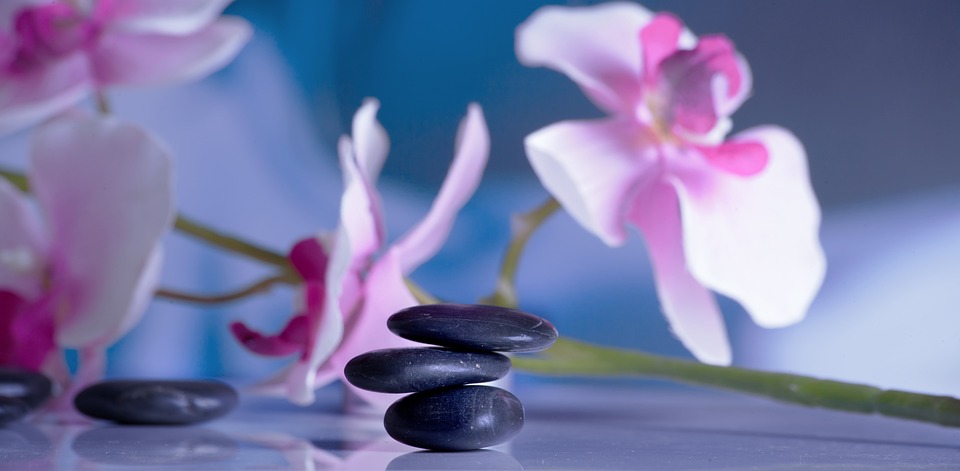Allergy sufferers face season after season of symptoms including runny nose, congestion, sneezing fits, itchy eyes, and more. Over-the-counter medications can provide some relief, but many allergy sufferers also turn to natural remedies to complement their treatment plans. Natural remedies for seasonal allergies come in many forms, including topical treatments, supplements, and lifestyle changes.

This guide provides details on 15 of the most popular and effective natural allergy remedies. We also answer frequently asked questions on natural allergy relief and compare popular treatment options in easy-to-use tables. Read on for insight into the diverse world of natural remedies for allergies.
Top 15 Natural Remedies for Allergies
The natural allergy remedies on our list are easily accessible, affordable, and research-backed in their effectiveness. Most of these remedies can be used safely in combination with over-the-counter allergy medications after consulting a doctor to ensure your regimen is appropriate.
1. Local Honey
Many allergy sufferers swear by local honey, and research backs up their enthusiastic claims. Raw, local honey contains trace amounts of local pollen and naturally-occuring enzymes.
Consuming a tiny bit each day can help build up your tolerance to the allergens found in your area (1).
Be sure to use raw, local honey rather than processed or commercially available honey. Try adding a spoonful to your tea each morning or drizzling a bit over plain yogurt. Over time, symptoms may decrease.
2. Quercetin
Quercetin is a powerful bioflavonoid found in many fruits and vegetables, with especially high concentrations in onions, capers, and apples (2). This powerful antioxidant can block histamine release to provide allergy relief.
Look for quercetin in supplement form from reputed brands. As a bonus, quercetin may boost your immune system and reduce inflammation throughout your body (3). Start with 500 mg daily.
3. Apple Cider Vinegar
Swallowing a teaspoon of raw, unfiltered apple cider vinegar (ACV) each morning may offer allergy relief by reducing congestion and mucus production according to anecdotal evidence (4).
Mix the ACV with a bit of local honey and warm water to create a delicious and soothing elixir. Continue the habit throughout allergy season to maintain the effects. Always dilute vinegar well before drinking to protect your tooth enamel and digestive tract.
4. Probiotics
Your gut health and immune function are closely intertwined. Nourishing your healthy gut bacteria with probiotics can strengthen your immune system to enable you to better handle allergen exposure (5).
Through placebo-controlled research, probiotic supplementation was shown to reduce nasal congestion by over 30% in allergy sufferers (6) Opt for refrigerated probiotic blends in pill or powder form from reputable supplement brands.
5. Butterbur
Butterbur is an herb that contains petasins, which can block histamines and calm allergic inflammation. Multiple clinical trials show its ability to decrease allergy symptoms on par with non-sedating allergy medications like Zyrtec or Claritin (7).
Look for butterbur supplements made by reputable supplement companies like Gaia Herbs and Always read supplement dosing instructions carefully. Avoid raw butterbur, which contains toxins that must be removed through careful processing. Do not give butterbur supplements to children.
6. Stinging Nettle
Stinging nettle is a perennial plant with sharp, needle-like leaves. Though the leaves can cause skin irritation, once processed into supplements the plant becomes a potent antihistamine and anti-inflammatory (8).
Nettle leaf capsules, teas, and extracts are readily available. Consume nettle regularly throughout allergy season to reduce symptoms. Avoid eating raw nettle leaves, as the sting is quite painful. Consult your doctor before consuming nettle if you have diabetes, as it may affect blood sugar.
7. Vitamin C
Most people associate vitamin C with immune health – and for good reason! This powerful antioxidant supports many facets of immune function, and studies indicate it can help minimize allergy symptoms (9).
Increase vitamin C consumption at first sign of allergy symptoms. Red bell peppers, oranges, strawberries and kale are all excellent dietary sources. Supplementing with 500 mg to 2 grams daily in divided doses can provide extra relief as well.
8. Green Tea & Matcha
The antioxidants found in green tea called EGCG have an antihistamine effect in the body, making enjoying a cup (or two) of green tea a breeze during allergy season (10).
To maximize the benefits, indulge in matcha green tea. Matcha is powdered green tea leaves, so you consume the whole leaf rather than just an infusion. This ups the antioxidant content considerably. Steep 1/2 teaspoon matcha powder in hot water for 90 seconds for an anti-allergy elixir.
9. Omega-3s
Reducing overall inflammation is key when battling allergies. Omega-3 fatty acids like those found in salmon and fish oil supplements powerfully combat inflammation. Clinical research shows supplementation can reduce allergy symptoms and medication usage (11).
Aim for at least 250 mg EPA and DHA daily. If you don’t eat fatty fish regularly, quality omega-3 supplements from reputable brands can fill the gap. Nordic Naturals and Wiley’s Finest are great options.
10. Nasal Saline Rinse
Irrigating mucus and allergens from nasal passages can provide major relief when allergies strike. DIY sinus rinses with just salt and water work beautifully to wash irritants away and keep your nose breathing freely (12).
Stir 1/4 teaspoon iodide-free salt into one cup warm distilled water until dissolved. Lean over a sink, cup water in your palm, and gently inhale one nostril at a time allowing the solution to flush through. Dry your nose then apply coconut oil lightly inside nostrils to protect tender skin.
11. Vitamin D
Seasonal allergies are worst in the spring and fall when many people become vitamin D deficient after long winters indoors. Research indicates vitamin D plays a regulatory role in immune health, enabling the body to respond appropriately to perceived threats like allergens (13).
Test your vitamin D levels with your doctor and supplement daily as suggested to reach a minimum blood concentration between 40-60 ng/ml. Get plenty of midday sunshine and consume vitamin D rich foods like wild salmon, rainbow trout, and mushrooms. High quality D3 supplements can fill gaps.
12. Acupuncture
Acupuncture leverages the balancing power of energy flow to calm allergy symptoms. Tiny needles are placed at strategic points along the body to reduce immune hypersensitivity to allergens like pollen or pet dander (14).
Schedule biweekly acupuncture sessions throughout the seasons when your allergies tend to flare. Search for licensed acupuncturists through the NCCAOM website. Many insurance plans cover acupuncture services as well. Most people find the treatments relaxing despite the presence of needles.
13. Essential Oils
Essential oils like eucalyptus, lavender, tea tree, clove and peppermint have anti-inflammatory properties that can open congested airways and reduce allergy symptoms when inhaled (15). Oils should always be diluted properly before applying topically.
Add a few drops of chosen essential oils into an atomizer with water, then mist around your workspace or diffuse at nighttime. This natural antihistamine effect provides a lovely aroma as it tames allergy suffering. Pay what you can for organic oil sets with myriad uses.
14. Turmeric & Ginger
Ginger and turmeric contain plant compounds called gingerols, curcuminoids and zingiberene which suppress allergy pathways in the immune system (16). Anti-inflammatory and antioxidant, enjoy these flavorful rhizomes in herbal tea, Golden Milk lattes, stir fries, smoothies or supplements.
Curcumin, turmeric’s primary active compound, is enhanced by black pepper. Always cook turmeric with black pepper or buy curcumin capsules combined with piperine (black pepper extract). Start with 500 mg turmeric extract twice daily. Standardized to 95% curcuminoids for maximum anti-allergy action.

15. HEPA Air Purifier
Indoor air is often more polluted than outdoor air, exposing you to allergens, pathogens and lung irritants all day long. Installing a HEPA filter air purifier helps trap pollutants, creating a sanctuary of clean air so you breath easier (17).
Choose an air purifier appropriately sized for your space with true HEPA filtration to remove 99.9% of particles sized 0.3 microns (including dust mites!). Set your new air purifier to run
continuously on low settings for constant filtration. Winix, LEVOIT and Coway make excellent HEPA filter models.
Comparison Tables: Natural Allergy Remedies vs Medications
When evaluating natural remedies and medications for seasonal allergy relief, there are many factors to consider. We’ve created simple comparison tables below to help you determine which options may suit your individual situation best based on convenience, effectiveness, side effects, and cost.
Convenience
| Treatment | Method | Frequency | Convenience |
| Acupuncture | Tiny needles placed at strategic body points | 1-2x per month | Moderate |
| Butterbur | Supplement capsule | Daily | High |
| Essential oils | Topical dilutions or diffused aromatherapy | Daily | High |
| Green tea/matcha | Beverage | Daily | High |
| HEPA air purifier | Runs filtered air through room | Continuously | High |
| Local honey | Orally consumed | Daily | High |
| Nasal saline rinse | Saline solution irrigation | Daily | Moderate |
| Neti pot | Saline solution irrigation | Daily | Moderate |
| Omega-3s | Supplement capsule or dietary | Daily | High |
| Probiotics | Supplement capsule or powder | Daily | High |
| Quercetin | Supplement capsule | Daily | High |
| Turmeric & Ginger | Dietary or supplement | Daily | High |
| Vitamin C | Dietary or supplement | Daily | High |
| Vitamin D | Sunshine, dietary, supplement | Daily | High |
| Zyrtec/Claritin | Tablet | Daily | High |
| Nasacort/Flonase | Nasal spray | Daily | High |

Effectiveness
| Treatment | Effectiveness Rating |
| Acupuncture | Moderate to High |
| Butterbur | High |
| Essential oils | Low to Moderate |
| Green tea/matcha | Moderate |
| HEPA air purifier | Moderate |
| Local honey | Moderate |
| Nasal saline rinse | Moderate to High |
| Neti pot | Moderate to High |
| Omega-3s | Moderate |
| Probiotics | Low to Moderate |
| Quercetin | High |
| Turmeric & Ginger | Moderate |
| Vitamin C | Moderate |
| Vitamin D | Moderate |
| Zyrtec/Claritin | High |
| Nasacort/Flonase | High |
Side Effects
| Treatment | Side Effect Risk Profile |
| Acupuncture | Extremely Low |
| Butterbur | Low |
| Essential oils | Low |
| Green tea/matcha | Low |
| HEPA air purifier | Low |
| Local honey | Low |
| Nasal saline rinse | Low |
| Neti pot | Low with proper sanitization |
| Omega-3s | Low |
| Probiotics | Low |
| Quercetin | Low |
| Turmeric & Ginger | Low |
| Vitamin C | Low |
| Vitamin D | Low |
| Zyrtec/Claritin | Low |
| Nasacort/Flonase | Low |

Cost
| Treatment | Estimated Cost |
| Acupuncture | $75-$150 per session |
| Butterbur | $15-$50 per month supply |
| Essential oils | $5-$15 initial purchase |
| Green tea/matcha | $5-$25 per month |
| HEPA air purifier | $100-$400 one-time purchase |
| Local honey | $5-$15 per month |
| Nasal saline rinse | $5 one-time purchase for supplies |
| Neti pot | $10-$20 one-time purchase |
| Omega-3s | $0-$30 per month |
| Probiotics | $0-$50 per month |
| Quercetin | $10-$30 per month |
| Turmeric & Ginger | $10-$20 per month |
| Vitamin C | $5-$20 per month |
| Vitamin D | $5-$15 per month |
| Zyrtec/Claritin | $10-$30 per month |
| Nasacort/Flonase | $30-$75 per month |
Frequently Asked Questions about Natural Allergy Remedies
Considering using natural remedies to ease your seasonal allergy suffering? Check out answers to these commonly asked questions first!
1. Are natural allergy remedies actually effective?
Many scientific studies demonstrate the effectiveness of popular natural remedies like butterbur, nettle, quercetin, probiotics and local honey at relieving allergy symptoms. While not as universally or potently effective as oral antihistamines or nasal steroid sprays, some natural options can provide moderate to major relief, especially when used preventatively.
Of course, reactions can vary by individual. Natural remedies warrant experimentation to determine which options work best for your unique allergies and symptom profile. Some may provide big relief where others fall short. Expect gradual ongoing improvements rather than instant allergy eradication.
2. Can I take natural allergy remedies with OTC medications?
Most natural allergy remedies can be taken safely alongside over-the-counter antihistamines like Claritin or Zyrtec and nasal steroid sprays like Flonase. Some pairings may even boost effectiveness.
For example, butterbur added to your medication regimen could enable you to take lower antihistamine doses with similar benefits. Always allow space between supplement doses and medications for proper absorption. Talk with your doctor or pharmacist first about your regimen if you have doubts. Stop immediately if side effects develop.
3. How long do natural allergy remedies take to work?
While OTC medications and nasal sprays offer more rapid relief, most natural options provide their benefits gradually over consistent daily use spanning weeks to months. For example, quercetin builds up steadily in your system over several weeks before hitting peak anti-allergy effects.
Preventative use is key with many natural options – start taking at least 4-6 weeks before your allergies typically strike. This gives levels time to build, enzymes time to activate and your body time to acclimate. Be patient, as allergy reduction often sneaks up on you after consistent dosing.
4. Are natural remedies safe for children?
Several natural allergy remedies are appropriate for children over age five including saline nasal rinses, nasal sprays containing xylitol or salt, probiotics, omega-3s and honey. Vitamin C, quercetin, nettle leaf and butterbur may be safe for children over twelve, but always check with your pediatrician before dosing.
Turmeric, essential oils, green tea and ginger should be avoided until adulthood. And never give children herbal supplements formulated for adults due to differences in metabolism and absorption. Always consult your pediatrician with questions about dosing by age and weight.









